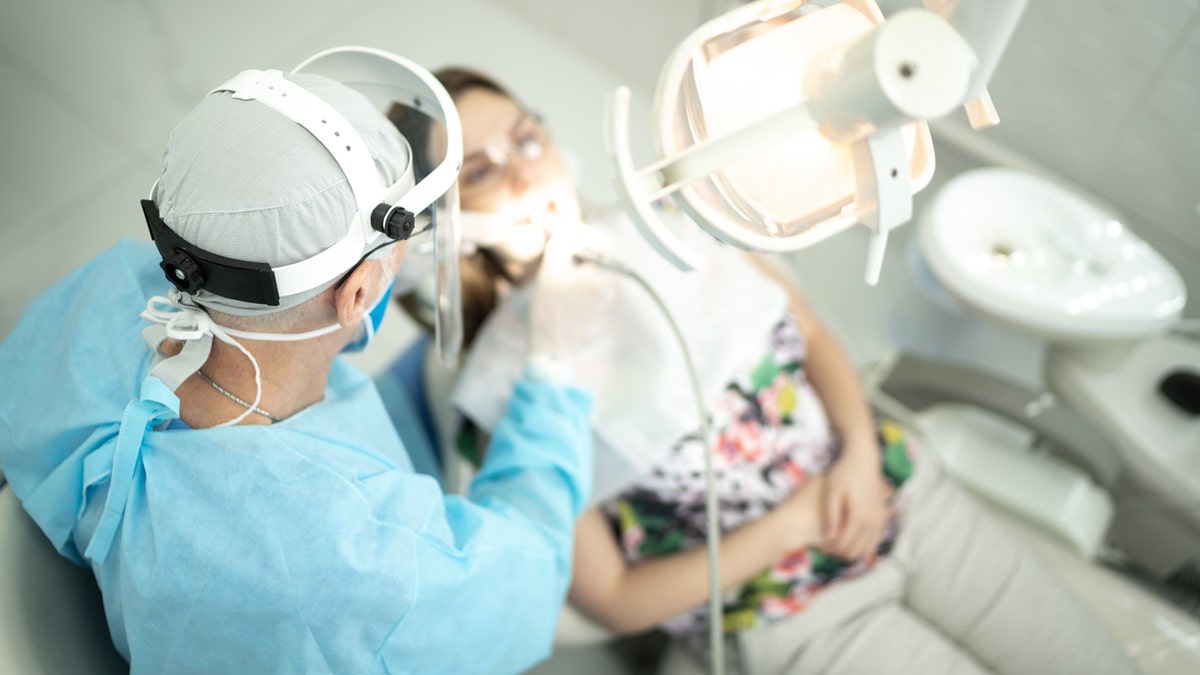Fox News Flash top headlines for October 15
Fox News Flash top headlines are here. Check out what's clicking on Foxnews.com.
Less than 1% of U.S. dentists were infected with the novel coronavirus amid the pandemic, a new study suggests.
The findings uphold some health officials’ calls to continue routine dental care amid the pandemic, though conflict with others, namely the World Health Organization, which had advised delaying nonessential dental care until a significant reduction in COVID-19 transmission rates were reached.
The findings, published Thursday in the Journal of the American Dental Association, stemmed from a web-based survey of 2,195 U.S. dentists in June. Results revealed 82% of dentists were not experiencing symptoms of any sort for one month preceding the survey. Some 16.6% reported getting tested for COVID-19; 6.4% tested positive in a variety of samples. Among those who weren’t tested, 0.3% received a probable COVID-19 diagnosis.
Researchers then weighted the data to estimate nationwide infection among dentists and found that just 0.9% had either confirmed or probable COVID-19.

Concern over coronavirus transmission during dental care rose earlier on in the pandemic, given its aerosol generating procedures. However a new study suggests just 0.9% of dentists were infected amid the pandemic. (iStock)
DENTIST WHO EXTRACTED TOOTH ON HOVERBOARD SENTENCED TO 12 YEARS IN PRISON
Concern over potential virus transmission during dental care arose earlier in the pandemic given aerosol-generating procedures, or the idea that small virus-laden particles flung into the air from handpieces, air-water syringes and ultrasonic scalers could cause infection, per the Centers for Disease Control and Prevention (CDC).
On its website, the CDC says to “recognize [that] dental settings have unique characteristics that warrant specific infection control considerations.” The health agency released guidance for dentists over the summer, advising hand hygiene, gowns, gloves, eye protection and facemasks. During surgical procedures believed to raise the risk of infection, N95 respirators were advised.
However, “There are currently no data available to assess the risk of SARS-CoV-2 transmission during dental practice," the CDC warns.
CLICK HERE FOR FULL CORONAVIRUS COVERAGE
The published survey found that 99.7% of dental practices used enhanced infection control procedures, and 73% of dentists adhered to the CDC’s guidance on personal protective equipment (PPE).

Enhanced infection control procedures were in place at nearly all dental practices, per the study. (iStock)
“This is very good news for dentists and patients,” Marcelo Araujo, D.D.S., senior author of the report and chief executive officer of the American Dental Association (ADA) Science and Research Institute, said in a news release. “This means that what dentists are doing – heightened infection control and increased attention to patient and dental team safety – is working.”
One practicing oral surgeon told Fox News he was not surprised by the positive findings and elaborated on COVID-19 mitigation measures at his practice, Avon Oral, Facial and Dental Implant Surgery.
FAUCI CALLS CORONAVIRUS HERD IMMUNITY APPROACH 'NONSENSE, VERY DANGEROUS'
Stuart Lieblich, DMD and clinical professor of oral and maxillofacial surgery at the University of Connecticut, said all patients are screened with questionnaires, and only one parent can accompany a child in, with social distancing in place in the waiting room. Special suction units remove aerosols during surgery and rooms are left unoccupied for 20 minutes between patients to allow for air exchange.
The staff is trained in infection control, PPE and instructed to stay home when ill. Staff showing symptoms cannot return unless they have a negative test and symptoms subside. Finally, the practice is set up for testing, and tests patients several days before anesthesia for wisdom tooth extractions, among other procedures, Lieblich said.









































